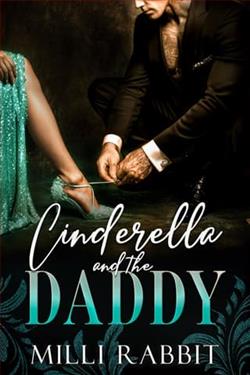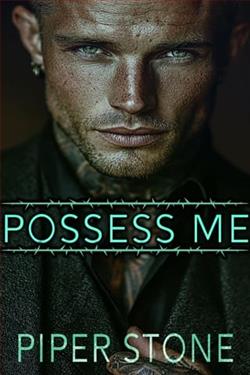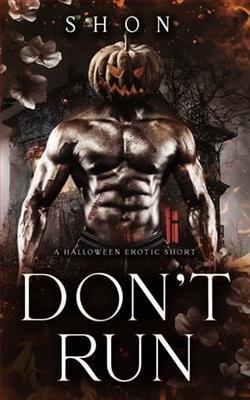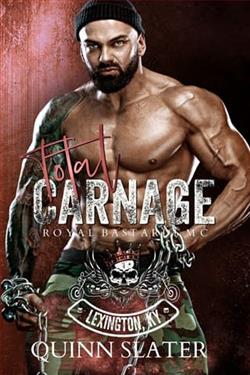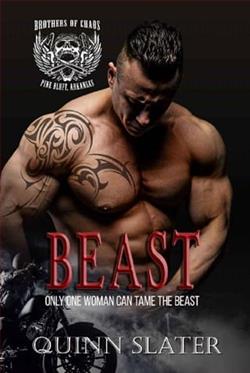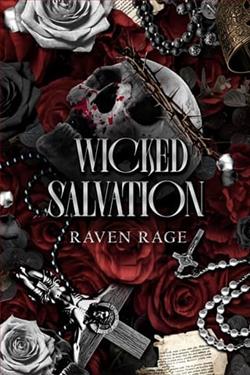Page 50 of The Wicked Lies of Habren Faire
“What is that?” he asks, voice thin enough to strike fear in me, too.
I hurry to join him at the edge of the forest, squinting against the sun. I follow the path of his hand as he points to a field of wheat that ripples like a crashing wave. Beyond it, biscuit-box cottages run in neat rings around a bell tower. No smoke billows from their chimneys, the fields are untended, and the white bell tower that crowns it all is shot through with pure, lifeless black, which seeps up from the ground into the cracks between the bricks and creeps its way to the top.
I don’t answer Neirin’s question. I don’t need to. The truth is obvious. It’s Y Lle Tywyll, clawing its way to the surface.
16
y clochdy
(THE BELL TOWER)
I shiver, the warmth of the forest dissipating to a pale, warning chill. I want to turn back, to return to our happy walk, but there’s no way around this village. It cuts through the valley. Circumventing it would take us off course—again. I can’t afford that. I take a deep breath and make a silent promise to Ceridwen that if I see anything horrible in this town I’ll hit her for it.
I enter the waist-high wheat without waiting for Neirin. Seconds later, there’s a crunch as he follows. The wheat parts like butter around us as we advance. The town draws closer, but the golden hour remains silent. No one chatters; no boots head home. There’s only the creak of a shop sign, and a windowpane—unlatched, slamming against the wall. Two eerie, competing pulses.
I pause, but Neirin continues, undisturbed.
“Wait,” I call.
The wind picks up and the wheat ahead bows, revealing the rows closest to town. They’re black and rotted to the core, with flies forming a cloud around their heads.
Neirin gives a small, shaky laugh. “No point in hesitating now, is there?”
We weave through the dead wheat, flies buzzing at our ears. Neirin winces and covers his nose, but I shake my head.
“It doesn’t smell,” I say. “Isn’t that strange?”
He shoots me a confused glance. “It reeks of burning, Habren.”
I breathe deep, but all I smell is crisp air. The rot, whatever it is, is scentless to my human nose.
Carts lie abandoned in the road. Nothing moves inside the houses.
A door stands ajar beside us, and we peer into an empty kitchen. Neirin steps forward first, pushing the door open. Nothing shifts. No one emerges to admonish him. When he steps inside, it’s the first time I’ve seen his footing uncertain.
“Come look,” he says.
I follow, hand on my sword-hilt. The kitchen is not so different from my own. The table is set for dinner and bears a jug of decaying flowers. The bottom of the tablecloth looks like it’s been dipped in black powder.
There’s more powder on the floor. I toe it carefully and it too has no smell.
Neirin traces a hard black seam protruding from the back wall. I reach for it and touch the cool, dry surface. Stone, seeping through the cracks.
No, not stone. Coal.
“Strange place to have—What!” Neirin leaps away from the table, back toward the door. A small arm disappears beneath the tablecloth.
“Something grabbed my leg,” he says.
I kneel and draw my sword, using it to lift the tablecloth slowly like it’s a theater curtain. I reveal a pair of dirty feet, then spindly legs covered with tattered, blackened trousers. Coal-dyed arms follow, clinging to scuffed knees, until a child is there, center stage, head buried beneath masses of filthy hair.
I open my mouth to speak, but then she lifts her head. Her eyes are covered over completely with coal, a stone blindfold drawn across her face.
She lurches forward.
I run for the door, and we dash back into the street. The girl follows. We bolt to the right, turning into the town square, and immediately find a tableau.
Thirty fairies fill the space, surrounding a well that bleeds coal through its stones. Coal encases their bodies, limbs and faces covered in growths.








